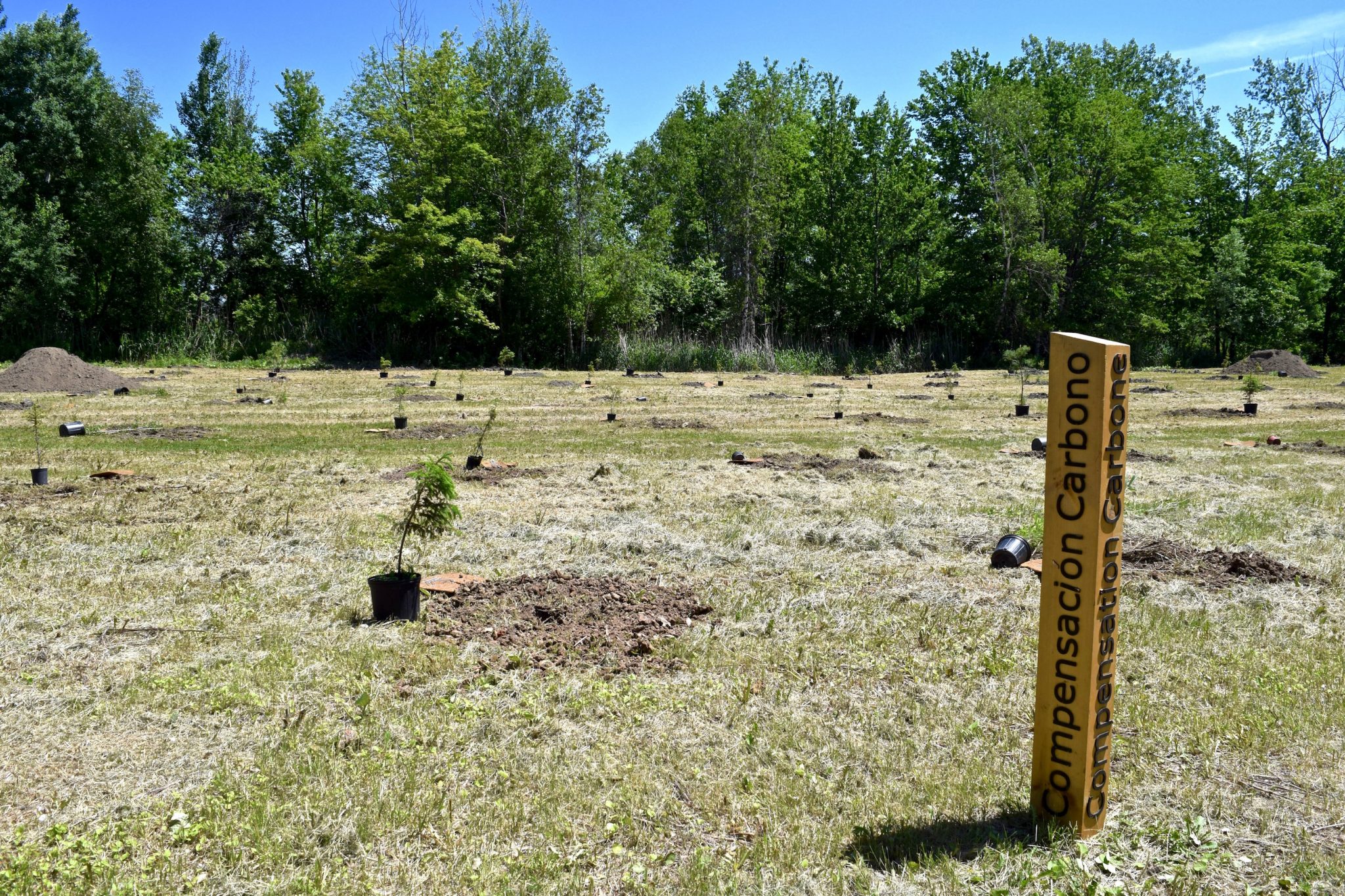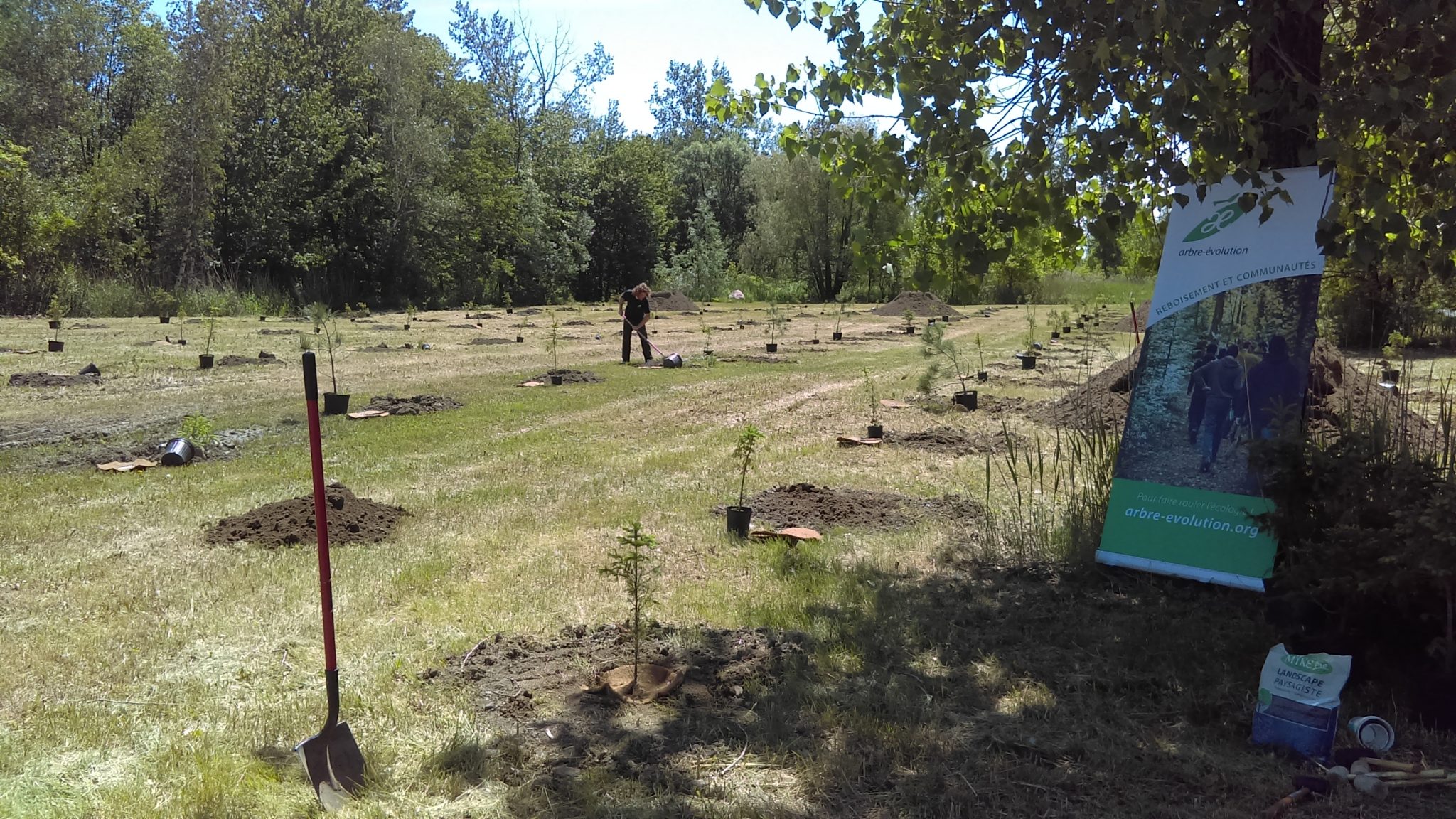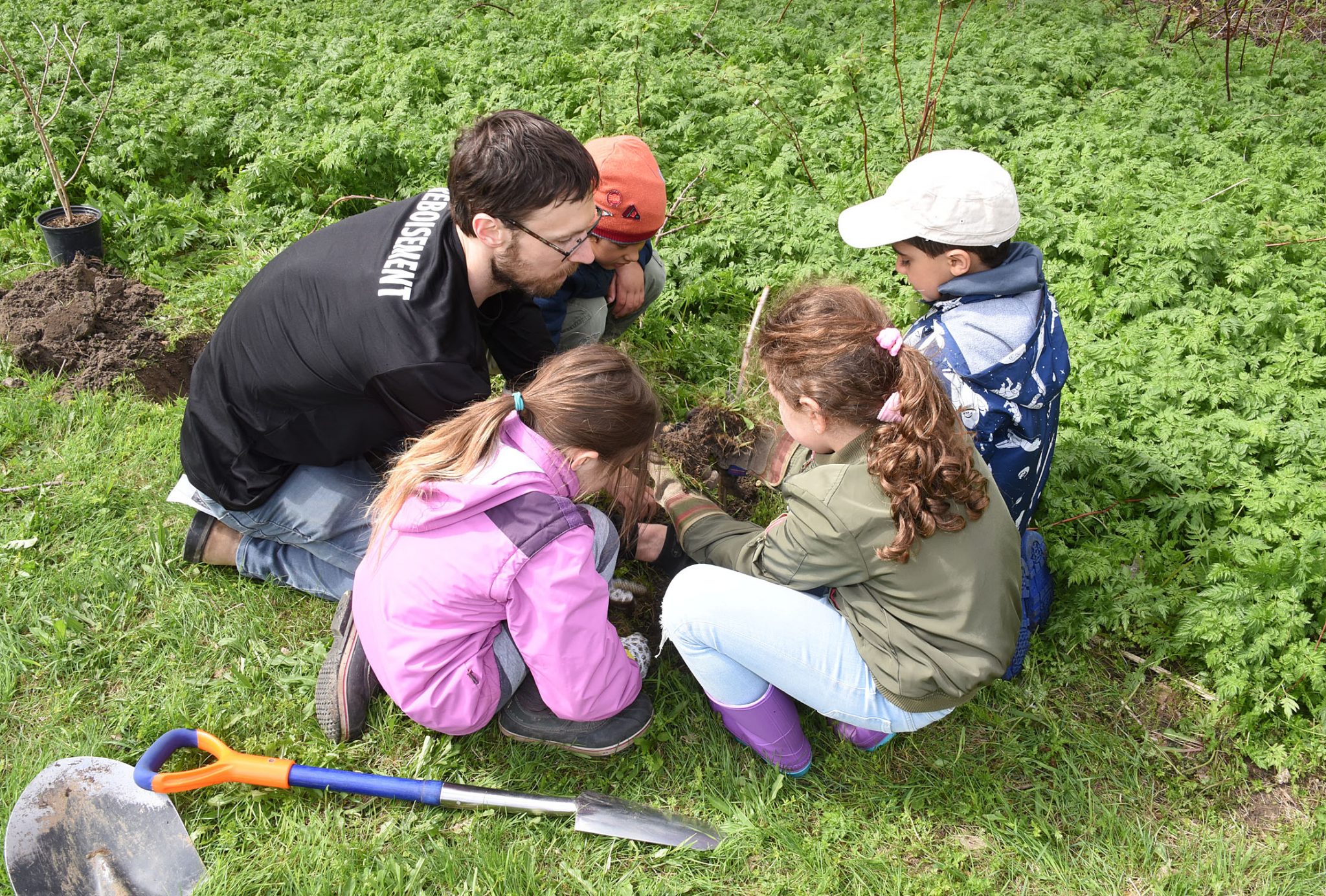A Canadian co-operative is pioneering a new approach to carbon offsetting, with a focus on the social aspect of planting trees.
Set up as a co-operative in 2016, Arbre-Évolution has recently become a certified partner of Coop Carbone, which works with enterprises to identify, develop and fund carbon-offsetting projects.
Jean Nolet, president and managing director of COOP Carbone, said the co-op’s approach was “refreshing”. He added: “The model used by Arbre-Évolution is simple yet innovative at the same time. It generates carbon offsetting projects while putting citizens and their communities in the spotlight.”
Simon Côte, founder of the co-op, says the social reforestation programme is based on the desire of local communities to make a difference.
“We are prioritising the social benefit of the carbon offsetting activity. We aim to create maximum social and environmental benefits for each tree planted.
“With our social reforestation programme we tackle two issues. Firstly, we offset carbon emissions by enabling trees to be planted. Secondly, we get the community together to address specific local needs.”
Arbre-Évolution selects projects from ideas put forward by businesses and community groups, which it then supports – sometimes by giving grants to communities.
Through the calculcarbone.org platform, communities, individuals and businesses can calculate how to offset their carbon footprint.
 For example, they can add the distance travelled by car, plane or public transport and see how many tonnes of CO2 they have emitted in the process and how many trees they would need to plant to offset this. The lands on which the trees are planted are publicly or collectively owned.
For example, they can add the distance travelled by car, plane or public transport and see how many tonnes of CO2 they have emitted in the process and how many trees they would need to plant to offset this. The lands on which the trees are planted are publicly or collectively owned.
Arbre-Évolution was not always a co-operative. The programme was launched seven years ago by LINEARE, an eco construction company in Quebec which wanted to lower its carbon footprint. Mr Côte was hired as director of the Arbre-Évolution company. The co-op model seemed more suitable to run an enterprise that required the involvement of a number of experts.
“In 2016 Arbre-Évolution Co-operative bought Arbre-Évolution private enterprise, ” said Mr Côte. The co-op has now 14 employee members, including agronomists, consultants, lawyers, who work together to carry out emission assessments for enterprises.
“Those members are not just employees or subcontractors, they are the co-op and they are defending the co-op,” added Mr Côte.
 So far, Arbre-Évolution has helped to plant over 30,000 trees.
So far, Arbre-Évolution has helped to plant over 30,000 trees.
“What we say to our customers is that our model is based on quality, not quantity,” said Mr Côte. “We prefer a small project of only 150 trees but with 100 volunteers taking part in planting them, with the local school there and a workshop delivered for the children. This is the kind of project that we create.”
Mr Côte believes that educating the public about the impact of CO2 emissions is key to addressing the climate challenge.

“We need to teach the younger generation about the environment, they need to be the citizens who are going to build a better society,” he said.
“You can plant a million trees, but if you don’t educate citizens, this is not going to work.”
In addition to its partnership with Coop Carbone, the co-op is working with the Forest Stewardship Council of Canada.
Francois Dufresne, president of FSC Canada, says the collaboration aims to raise awareness of the importance of maintaining the natural state of forests. FSC is an international NGO, which sets the standards for responsible forest management. The two organisations will work together with local communities and schools to educate them about climate change.
“FSC is an important platform for forest solutions and we believe it’s to the benefit of future generations to maintain the natural state of forests. Biodiversity and protection of forests are key to addressing the climate change impact,” said Mr Dufresne.
Collaborating with established carbonoffsetting bodies has helped to increase Arbre-Évolution’s profile.
The journey has not been easy, says Mr Côte. With its projects being small-scale and spread across the country, the co-op lacks the gold certifications that other carbon offsetting organisations have.
The co-op’s approach is to enable communities and companies to be part of the process rather than give enterprises the option to simply buy carbon credit.
“Each tree is linked to a web page with photos and personal reports,” added Mr Côte. “Sometimes we plant trees very close to the headquarters of companies; sometimes they come with us and plant their own tress. It’s nothing like an anonymous project.”
Looking ahead, the co-op aims to increase the number of projects, and hopes to export its social reforestation model abroad, with preliminary work already taking place in Haiti and Cuba.